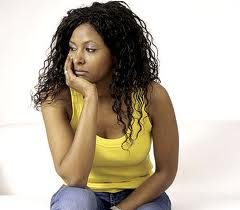 Eddie Sebastia was aiming to improve his appearance, not interfere with his sex life, when he took Propecia or Proscar.
Eddie Sebastia was aiming to improve his appearance, not interfere with his sex life, when he took Propecia or Proscar.
The drugs, which contain finasteride, were prescribed for male pattern hair loss, the Polk County man said in a lawsuit filed in circuit court. Instead, he contends, it led to erectile dysfunction, decreased libido, testicular pain and related emotional issues, including depression and anxiety.
Male pattern hair loss is a common condition in which men have gradual thinning of the hair on the scalp, leading to a receding hairline or balding on the top of the head, according to the National Institutes of Health.
Sebastia and his wife, Lisa, are suing Merck & Co. Inc., a global pharmaceutical company, and Merck, Sharp & Dohme Corp., a subsidiary that distributes both drugs.
Similar lawsuits have been filed by other men nationwide, with some law firms advertising their interest in class-action lawsuits. Some online websites warn of possible long-lasting or permanent side effects.
A Merck spokesman, however, responding to other lawsuits about Propecia, is quoted in the Philadelphia Inquirer as saying Merck is prepared to ‘vigorously defend’ against them.
Propecia is marketed for male pattern hair loss. It’s a lower dose of finasteride than Proscar, which Merck markets for treating prostate gland enlargement. Finasteride is deemed to effectively treat alopecia or hair loss by inhibiting the buildup of DHT (dihydrotestosterone) in the scalp. DHT is responsible for blocking the absorption of nutrients by the hair follicles, hence causing hair to thin, excessively shed, or cease to grow. Although it has proven to be successful in regrowing hair, finasteride has repeatedly received reports of its harmful side effects.
Sebastia said his doctor told him, when he took Proscar, to divide the Proscar tablet containing 5 mg of finasteride into separate daily doses. The other drug, Propecia, has 1 mg of finasteride.


